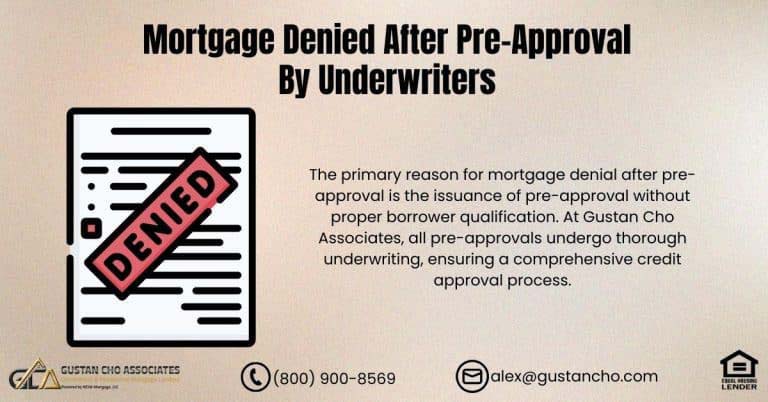This guide covers the types of income that mortgage lenders consider qualifying income can use for mortgage loans. Not all income types can be used as qualifying income for lenders. Qualifying income is verified documented income that has been sourced and is likely to continue for the next three years.
It’s important to note that lenders may have specific requirements and guidelines for each type of income, and borrowers may need to provide documentation to verify the stability and reliability of their income.
Certain types of income may be subject to specific eligibility criteria or restrictions depending on the loan program and the borrower’s financial situation. For example, if you are making consistent income as a landscaper and can easily make the down payment and monthly payments on the new mortgage, you may or may not be able to get a mortgage. If you get paid by a company through their payroll system and taxes are taken out and have a full-time job, that income is most likely considered qualifying income and can be used. However, it is not considered qualifying income if you get paid cash from the customer and do not declare it on your income tax returns.
What is Qualifying Income
Qualifying income for mortgage loans generally includes various sources of income that lenders consider stable and reliable for making mortgage payments. The specific types of qualifying income can vary depending on the individual loan program. Some common examples include employment income: Wages or salary from a full-time or part-time job is considered qualified income.
Investment income: Income from dividends, interest, or capital gains. Lenders may consider investment income if it can be documented, proven stable, and reliable.
Lenders typically prefer stable employment history and supporting verification such as pay stubs, W-2 forms, or employment verification letters. Income from retirement accounts includes pensions, Social Security benefits, 401(k) distributions, or IRA distributions. Lenders may require documentation such as award letters, retirement account statements, or tax returns.
Find Out in Minutes If Your Income Qualifies for a Home Loan
W2, 1099, side gigs, or retirement income—we help you sort out what lenders can use
Factors Affecting Qualifying Income
Qualifying income is verified and souced income less the borrower’s liabilities. The are factors that affect the true qualifying income. Factors that affect the true qualifying income to determine debt-to-income ratios are income, other income, liabilities, assets, and credit scores. All of these are the factors that determine whether mortgage borrowers qualify and how much they qualify on a mortgage loan. Other Income In Mortgage Qualification can be used besides just the main full-time income.
The underwriter also will analyze credit report to review payment history. Mortgage underwriters will do a third party national public records search to determine whether borrowers have any public records not on credit report.
Income and liabilities are used to determine borrowers debt to income ratio. In the event borrower’s income cannot be documented, it can hurt chances in getting qualified for a mortgage loan. Many self-employed borrowers and those who receive cash income normally run into high debt-to-income ratio problems . If borrowers do not meet minimum debt-to-income ratio requirements, then they need other income in order to meet the minimum debt-to-income ratio requirements. In this article, we will discuss and cover the types of qualifying income that can be used for a mortgage loan.
Front-End Debt-to-Income Ratios
Debt-to-income ratios are calculated adding the minimum monthly debt payments that report on the credit bureaus and dividing the sum by the borrower’s and co-borrowers (if applicable) monthly gross income. There are two types of debt-to-income ratios. Front-end and back-end debt-to-income ratios. The front-end debt-to-income ratio is referred to as the housing ratio. The front-end debt-to-income ratios is calculated taking the sum of the monthly housing payment and dividing it by the borrower and co-borrowers (if applicable) gross income. The housing payment consists of the principal, interest, property taxes, homeowners insurance, and homeowners association fee (if applicable). The housing payment is often referred to as PITI (principal, interest, tax, insurance).
Back-End Debt-to-Income Ratios
The back end debt to income ratios is the sum of the PITI plus all monthly minimum payments that report on the credit bureaus and dividing the total number by the borrower’s and co-borrowers’ (if applicable) monthly gross income. The PITI is the housing expense and the monthly obligations include the following:
- Monthly mortgage payments
- Automobile payments
- Student loan payments
- Installment loans
- Revolving minimum monthly payments
- Minimum credit card monthly payments
Take the sum of above including PITI and divide by the total monthly gross income of the borrower, or borrowers will yield the back-end debt-tot-income ratio. Rental income and other income can be used for mortgage loans. Income generated from renting out properties. Lenders may consider a portion of rental income when calculating qualifying income. However, they typically require documentation such as rental agreements, lease agreements, and rental income tax returns.
What Are The Debt-to-Income Ratio Mortgage Guidelines
Every mortgage loan program has its own debt-to-income ratio mortgage guidelines. HUD agency guidelines on FHA insured mortgage loans, the maximum front-end debt-to-income ratio allowed is 46.9%. The maximum back-end debt-to-income ratios allowed is 56.9%. For conventional loans, the debt to income ratios are much lower and capped at 50% back-end debt-to-income ratio. There is no maximum front-end debt-to-income ratio on conventional loans.
Even thoughthe maximum debt to income ratios can be as high as 50% DTI on conventional loans, the true allowed is determined by the Automated Underwriting System.
The debt-to-income ratio on conventional loans depends on how strong the borrowers are per the Automated Underwriting System. VA loans do not have a debt to income ratio caps and it depends on AUS Findings. USDA loans cap debt-to-income ratios at 29% front-end and back-end of 41% DTI. Debt-to-income ratio on jumbo and non-QM loans depend on each individual mortgage lender. Jumbo mortgages cap debt to income ratios at 50% DTI.
Self-Employed or 1099? Make Your Income Work for You
If you’re self-employed, commission, or 1099, many lenders get it wrong. We specialize in complex files and non-traditional income
Types of Qualifying Income That Can Be Used For a Home Loan
Other qualifying income that can be used to qualify for a residential mortgage loan and is allowed are part-time income, overtime income, bonus income can be used. Other types of income can only be used as qualifying income as long as it has been seasoned for two years and likely to continue for the next three years.
Other sources of income, such as disability benefits, rental income, royalties, or regular bonuses or commissions, may also be considered by lenders.
Social security income can be used and most often can be grossed up by 15% on government-backed loans and 25% on conventional loans. Pension income can also be used to qualify for a mortgage loan and if the recipient receives non-taxable income gets a net check, then pension income can also be grossed up by 15%. Royalty income can be used if it will continue on for the next three years.
Alimony and Child Support Income
Alimony and child support income can be used if and only if the alimony and child support will be continued for the next three years and you can provide documentation. Overtime income can be used if, and only if, the borrower has had continuous overtime for the past two years.
Alimony or child support: Court-ordered payments from a former spouse or parent. Lenders may consider alimony or child support income if it can be documented and is expected to continue for the foreseeable future.
Human resources department of the borrower can attest that future overtime is likely to continue for the next three years. Part-time job income can be counted as other income if the borrower has had a part-time job for the past two years. The likelihood of part-time income to continue for the next three years needs to be likely in order to count.
Other Qualifying Income With Substantial Write-Offs on Tax Returns
Many borrowers who had substantial one time losses on their income tax returns can have those one-time losses exempt from being written off as a loss on their income tax returns. As long as huge losses on one time write-offs on tax returns will not continue, then that loss can be taken off and used as qualifying income. Other instances borrowers can convert losses to qualifying incme on tax returns is in cases of closing or selling a business. The business no longer is in operations so the borrowers will not longer have a gain or loss. Therefore, a one time loss exemption can be applied and converted to qualifying income. The borrower need to provide proof that the business has been sold or closed. Need to proved closing out the LLC or S-Corp.
This BLOG on what is considered qualifying income for a mortgage loan was updated on March 2nd, 2024
Get a Strong Pre-Approval Based on Realistic Qualifying Income
A strong pre-approval starts with correctly calculating income. We verify your pay, bonuses, overtime, rental, and other income before you shop for a home









